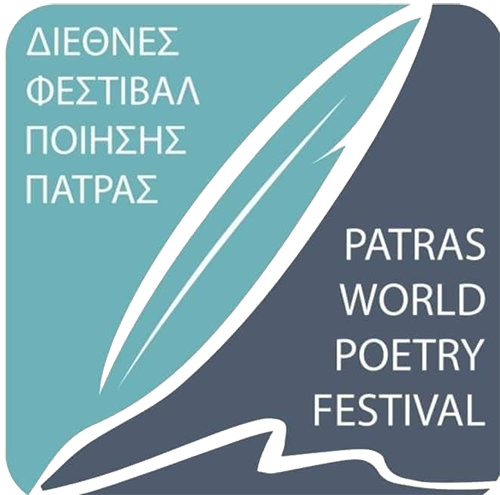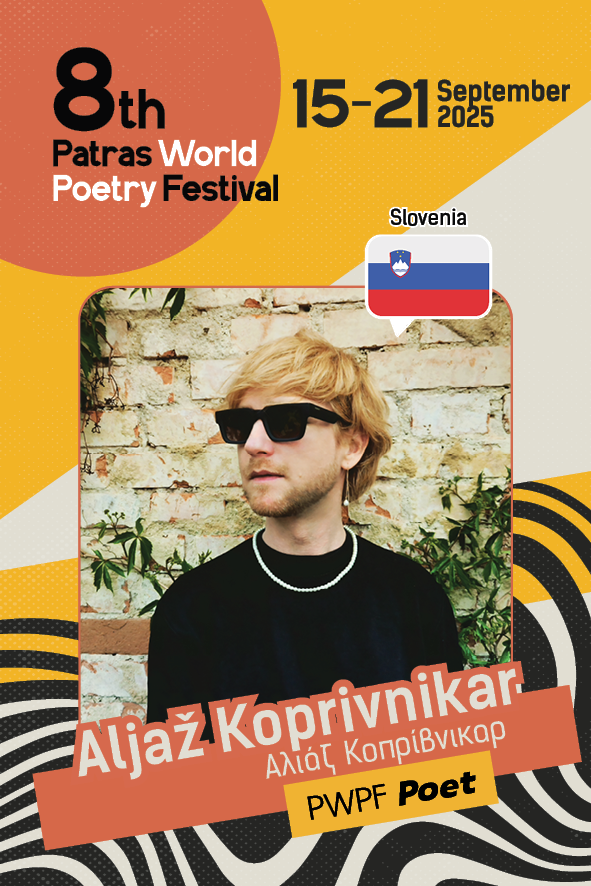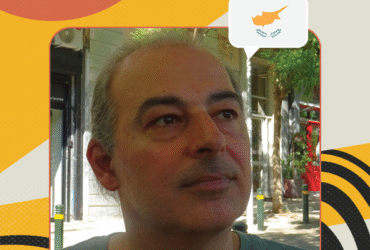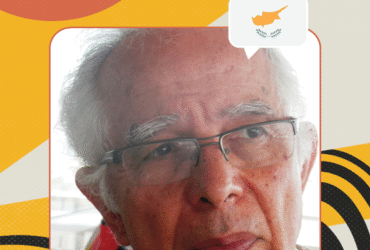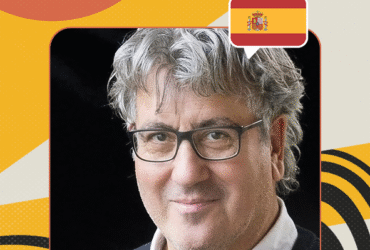IV.
Brat, pišem ti pod dežjem izstrelkov, pod stropom iz ognja in prahu eksplozij. Hiše ni več, le spomin nanjo, skrbno zložen kot zadnja otroška risba, tista, ki je mama nikoli ne bo obesila na hladilnik. Tudi morje je ranjeno, reke presihajo, in ribiške mreže so polne duhov, tu ne smemo loviti rib – to je mejno območje. Pišem na robovih tišine, seznam imen, ki jih veter ne sme pozabiti, na hrbtni strani bonov za hrano UNRWA, na plastični ovoj vreče moke. Včasih pišem na golo kožo, da bi si zapomnil abecedo preživetja. Figovca ni več, tistega po katerem sva plezala, da bi kradla zelene plodove, ostre kot odpor. Zdaj obiramo sirene, živimo v sadovnjaku, ki nenehno joče. Tam je starec, ki igra na lutnjo s samo dvanajstimi strunami, manjkajočo struno poimenuje z imenom svojega sina. Preživeli so se skrili v podzemlje, splazili so se v kanalizacijo, v predore. Majhni dečki. Včerajšnje tarče, nikomur nič dolžni, izstrelke skrivajo v žepih kot spominke, s čela si umivajo saje, obkroženi z bodečo žico in nemimi kontrolnimi točkami. Medtem jih v zemljo polagamo namesto semen. Ljudje padajo pod tanki, pod streli strojnic in v naročje svojih mater. S tresočimi rokami naboji dežujejo po ulicah, v imenu matere, hčere in svetega duha. Nekdanji sosedje z betonskimi obrazi in oteklimi očmi preklinjajo svobodo ptic, zvoke ognja, ki ogluši. Ni včeraj in ni jutri. Ni svetlobe kjer bi skril svojo senco, le večnost v približevanju.
Sinoči sem sanjal, da si se vrnil. Sedela sva ob kraterju, ki je bil nekoč pekarna. Z mano si lomil kruh. Pravi kruh. Moko brez pepela. Sol brez žalovanja. Obstajal je nekdo, ki je pekel kruh. Nekoga lahko rodiš. Nekoga lahko ubiješ. Nekoga lahko ljubiš … ali karkoli drugega, kar ljudje počnejo z ljudmi, če se še prav spomnim. Spomni me. Tukaj so sanje razkošje. Pokopljemo jih hitreje kot mrtve.
Povej mi … tam, na tvoji strani ograje, so ptice še svobodne ali šepečejo v strahu, kot tu?
IV.
Brother, I write to you under a rain of shells, beneath a ceiling of fire and explosion dust. The house is gone—only a memory remains, folded carefully like a last childhood drawing, the one mother will never hang on the fridge. Even the sea is wounded, rivers are drying up, and the fishing nets are full of ghosts. We are not allowed to fish here—this is a border zone. I write on the edges of silence, a list of names the wind must not forget, on the back of UNRWA food vouchers, on the plastic wrapping of a flour sack. Sometimes I write on bare skin, to remember the alphabet of survival. The fig tree is gone—the one we used to climb to steal green fruits, sharp as resistance. Now we harvest sirens; we live in an orchard that weeps without end. There is an old man who plays a lute with only twelve strings—the missing string he names after his son. The survivors have gone underground, crawled into the sewers, the tunnels. Small boys. Yesterday’s targets. Guilty of nothing. They hide shrapnel in their pockets like souvenirs, wipe soot from their foreheads, surrounded by barbed wire and mute checkpoints. Meanwhile, we plant them in the soil instead of seeds. People fall—beneath tanks, under machine-gun fire, into the arms of their mothers. With trembling hands, bullets rain down on the streets in the name of the mother, the daughter, and the holy ghost. Former neighbors, with concrete faces and swollen eyes, curse the freedom of birds, the sound of fire that deafens. There is no yesterday and no tomorrow. No light to hide your shadow in—only eternity in approach.
Last night I dreamed you had returned. We sat beside a crater that used to be a bakery. You broke bread with me. Real bread. Flour without ash. Salt without mourning. There was someone who baked the bread. You can give birth to someone. You can kill someone. You can love someone… or whatever else it is people do with people, if I still remember rightly. Remind me. Dreams here are a luxury. We bury them faster than the dead.
Tell me… over there, on your side of the fence, are the birds still free, or do they whisper in fear, like they do here?
VIII.
Normalno je, zaspati z bolečino in se zbuditi z večjo. Na poti smo izgubili semena upanja in se izgubili v goščavi polomljenih oljčnih dreves. Oblake paramo s svojim čakanjem. Tukaj se otroci igrajo s kroglami, kot bi bile kamni. Posnemajo krike dronov. Matematiko se učijo z odštevanjem: en oče minus ena hiša minus en glas je enako tišini. Tukaj se držimo napisov na grobovih kot zračna drevesa s suhimi koreninami, kot plesen, ki se širi po steni. Med bombardiranjem se ne moli. Samo šteješ. Pet sekund. Sedem. Dvajset. In če prideš do trideset, si še tukaj. Potem pogledaš strop. In čakaš, če ga še imaš. Nocoj sem videl žensko, ki je izgubila obraz. Ne metaforično. Obraz. Poiskali so ji zobe med ruševinami. Otroci tukaj ne rišejo več sonc. Rišejo kose teles. Rišejo okna brez stekla. Rišejo črne kroge namesto obrazov. Njihove igrače so ostanki streliva, kartoni z oznako UN. Zrak tukaj ni več zrak. Je prah iz kosti, gorivo za molk. Ko dihaš, vdihneš nekoga drugega. Nocoj sem videl otroka brez nog, kako je šepetal številke. Samo številke. 1. 9. 4. 8. 1. 9. 4. 8. Morda pesem. Morda ime očeta. Vsak človek tukaj je arhiv. Vsaka ženska nosi zemljevid ran. Vsak dih izjava. Vsak zamolk obtožnica.
Ko pride napad te lahko zdrobijo in uničijo, toda tako te bodo težje našli, preden se odpraviš na pot izven taborišča, preden se odpraviš onkraj varnostnih meja, ohrani spomine, da vojno lahko ubiješ z zadušljivim vzglavnikom spanja in iz tujega spanca vzameš nočno moro kot nož iz žepa odpuščanja. Vsaj tako upaš, da ko boš s čolnom dosegel nasprotno obalo, stran od tega temnega in uničenega mesta, te bo svetloba pustila brez besed, do vseh teh luči, ki sijejo vse do tistega stanovanja, ki si ga zapustil, in kjer nekdo sedaj prebira tvoja pisma, poskuša razumeti …
morda sem ta oseba jaz
VIII.
It has become normal to fall asleep with pain and wake up with even more. On the way, we lost the seeds of hope and got lost in the thicket of broken olive trees. We tear the clouds apart with our waiting. Here, children play with bullets as if they were stones. They imitate the screams of drones. They learn mathematics through subtraction: one father minus one house minus one voice equals silence. Here, we cling to the inscriptions on graves like air-roots of trees with dried-out roots, like mold spreading across the wall. During bombing, there is no praying. You only count. Five seconds. Seven. Twenty. And if you get to thirty, you’re still here. Then you look at the ceiling. And wait—if you still have one. Tonight, I saw a woman who had lost her face. Not metaphorically. Her face. They searched for her teeth in the rubble. Children here no longer draw suns. They draw body parts. They draw windows without glass. They draw black circles instead of faces. Their toys are remnants of ammunition, cardboard boxes marked UN. The air here is no longer air. It is bone dust, fuel for silence. When you breathe, you inhale someone else. Tonight, I saw a child without legs whispering numbers. Only numbers. 1. 9. 4. 8. 1. 9. 4. 8. Maybe a poem. Maybe the name of a father. Every person here is an archive. Every woman carries a map of wounds. Every breath a statement. Every silence an indictment.
When the attack comes, they can crush you, destroy you — but that way, they’ll have a harder time finding you. Before you leave the camp, before you cross the security lines: hold on to memory, so you can kill the war with the suffocating pillow of sleep, and take a nightmare from someone else’s dream like a knife from the pocket of forgiveness. At least you hope that when you reach the other shore by boat, far from this dark and devastated place, the light will leave you speechless—facing all those lights that shine all the way to the apartment you left behind, where someone is now reading your letters, trying to understand…
